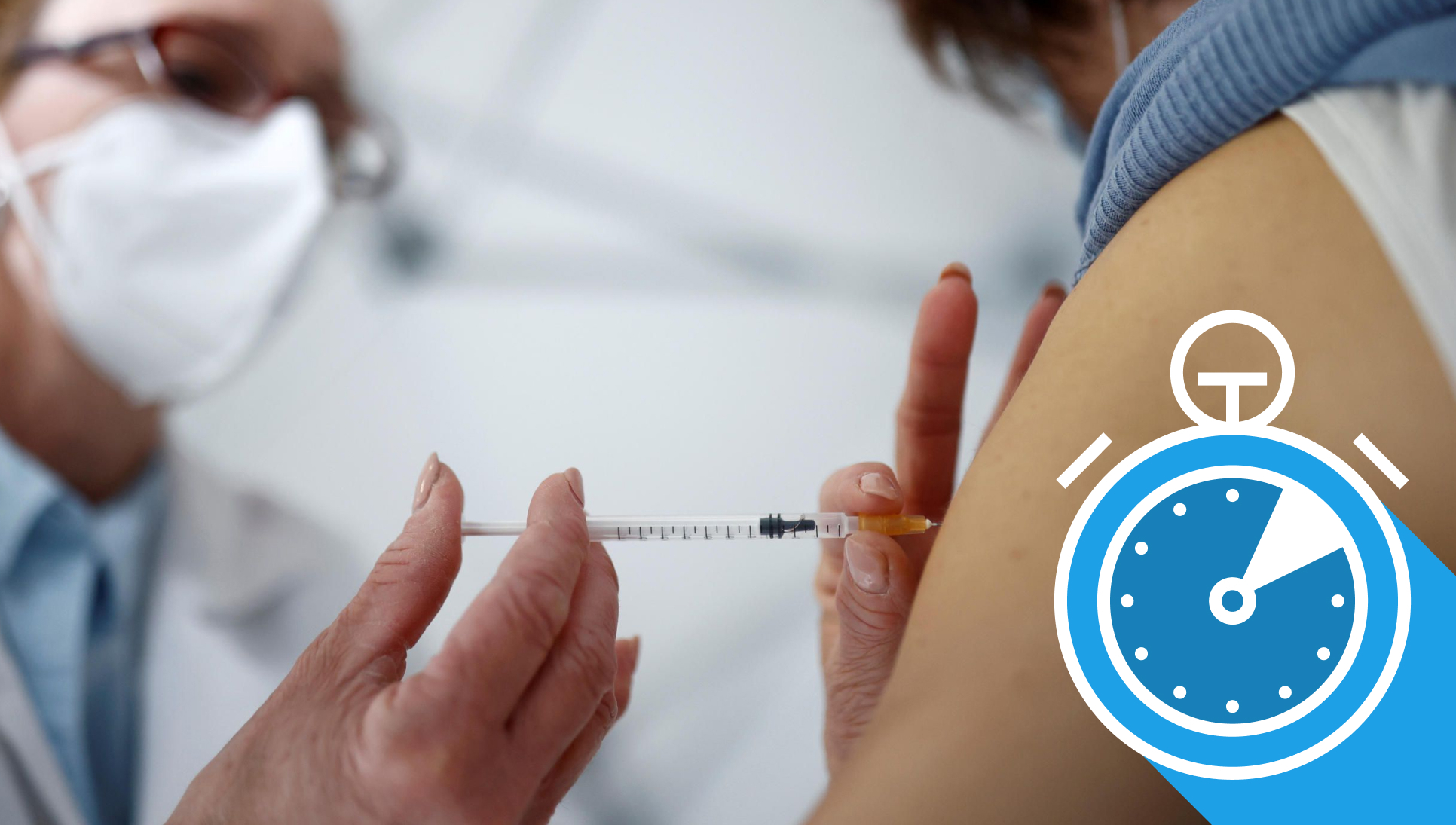Will they regain the right to receive the AstraZeneca vaccine, if they wish?
Those under 55 were taken out of target categories on March 19, due to the (very rare) risk of thrombosis after the injection.
But faced with accumulating stocks and the need to speed up vaccination, the government is considering that it may also be authorized again, under certain conditions, to younger children.
The Minister of Health, Olivier Véran, has already indicated to have seized the High Authority of Health (HAS), supposed to communicate "by the end of the week".
The first elements do not point in the direction of a "favorable response", said Wednesday the spokesman of the government, Gabriel Attal.
Contacted by Le Parisien, the HAS specifies that it will decide "probably" rather "at the beginning of next week", the time to receive additional data from the National Medicines Safety Agency (ANSM).
We take stock.
How could this work?
Opening up the AstraZeneca vaccination to those under 55 could not only allow these categories to be inoculated with this product, but also the youngest first-vaccinated in February and March to receive a second injection.
These 530,000 patients are currently supposed to be "revaccinated" with Pfizer or Moderna, based on messenger RNA technology.
The HAS is currently examining all the scientific data available, in order to establish whether the benefit / risk ratio remains favorable in certain cases in those under 55 years of age, we are told.
The European Medicines Agency has already announced that there was no evidence at this stage to corroborate a risk of severe thrombosis more or less high according to age.
It is difficult to say, at this stage, for what types of profile and under what conditions an opening could be decided.
Read also AstraZeneca: these doctors who vaccinate people under 55 despite the recommendations
Olivier Véran also hypothesized that the patient would have to sign a paper indicating that he is fully aware of the risks involved, or even that he would undertake not to turn against the doctor in the event of a side effect. It would then be a form of "discharge", to use the word he used. "It would not be a discharge strictly speaking, but rather a document containing the main information to know", procrastinates a source at the heart of the matter.
However, the government is not necessarily required to follow the recommendations of the HAS.
In early January, for example, he had decided to maintain the time between the two doses of Pfizer vaccine to 3 or 4 weeks, while the body recommended to increase to six.
Alain Fischer, President of the Vaccine Strategy Orientation Council, Alain Fischer, has already said this Thursday "rather to stay on the current recommendation".
What do the doctors think?
In the field, pending the recommendation of the HAS, many health professionals are rather in favor of the opening of the AstraZeneca vaccination to people under 55, under certain conditions.
“We refused people because they were 54 years and 7 months old and we were afraid of the medico-legal consequences.
I am quite in favor of having the freedom to vaccinate people under 55, on the basis of a decision shared with the doctor, ”explains general practitioner Jonathan Favre.
VIDEO.
AstraZeneca vaccine: "Thrombosis should be listed as rare side effects"
But they say they are generally opposed to the principle of a "discharge" or even any document to be signed.
“In terms of communication, it would be disastrous because it would give the impression that the state is shirking all responsibility for what might happen.
That would only reinforce the mistrust against this poor vaccine, judges for example the doctor Luc Duquesnel, who coordinates the eight centers of vaccination in Mayenne.
“The discharge is not a good idea, in France it does not exist in the law.
It is necessary to be based on the oral agreement of the patient on the basis of scientific documents, and an official message saying that the vaccine can be given to people under 55 years old, completes Jonathan Favre, who officiates in Villeneuve-d'Ascq.
What are our neighbors doing?
Since March, the framework set has varied greatly from country to country. Austria, for example, continues to administer this "unloved" vaccine to all adult residents who want it. "The benefits of the AstraZeneca vaccine in the fight against Covid-19, which can itself cause coagulation problems and be fatal, continue to outweigh the risk of side effects," says the Agency on its website for Austrian health and food safety.
In at least 4 of the 16 German Länder, these large regions that make up the country beyond the Rhine, an adult can be vaccinated with AstraZeneca regardless of his age after in-depth discussion with his doctor and with the latter's full agreement. Signing of a document confirming that all information has been provided may also be requested. "Personally, that would pose a problem for me since it is not authorized for young people in France", testifies Thomas, 30, salesman who has lived in Germany for 10 years. This vaccine could even soon be offered to all adults without age criteria across the country, Federal Minister of Health Jens Spahn said on Wednesday.
The majority of other European states have decided to place an age limit, most often 60 (and not 55 as in France).
The United Kingdom has raised the bar at… 30 years old.
Where are we with the vaccination with AstraZeneca in France?
This vaccine is struggling more and more to convince new volunteers, despite the "signs of shudder" that the government says it sees.
The number of people receiving a first injection each day has dropped to less than 25,000, three times fewer than in mid-April.
Read also AstraZeneca and Janssen vaccines: why France risks having too many doses in stock
Sunday evening, 75% of the AstraZeneca doses received had been administered, versus 85% for Moderna and 95% for Pfizer. And this rate, already lower than for its competitors, does not take into account the very important delivery of more than 2 million doses supposed to arrive this week.









